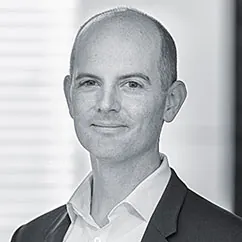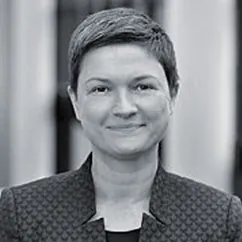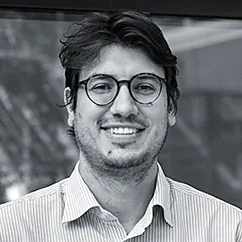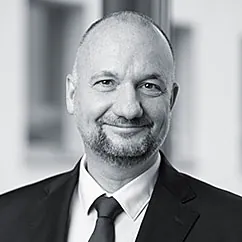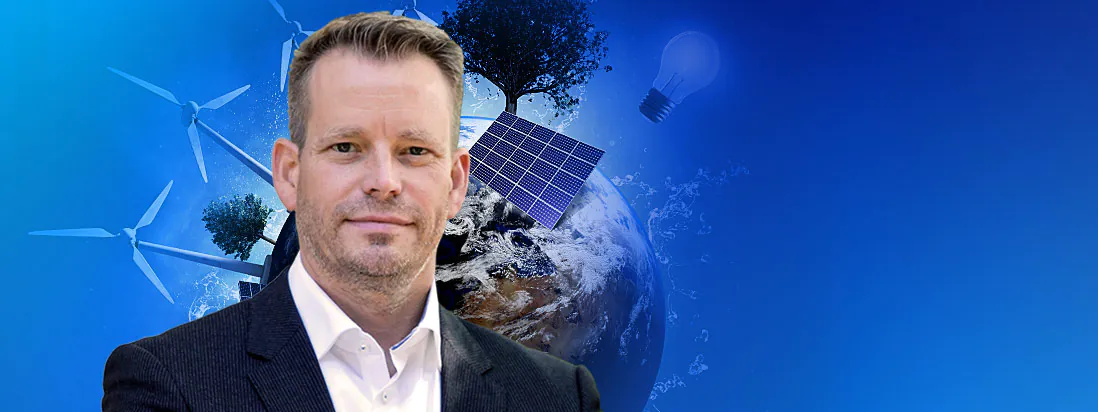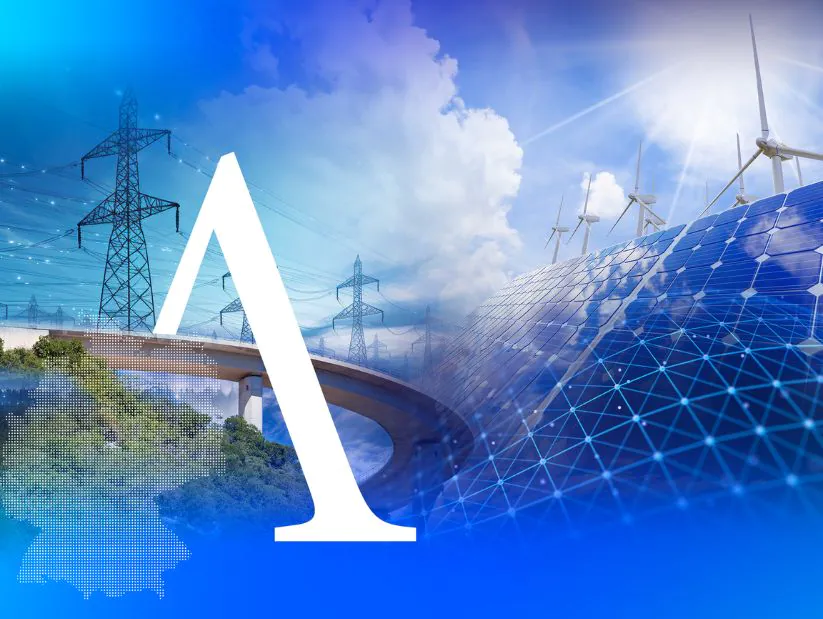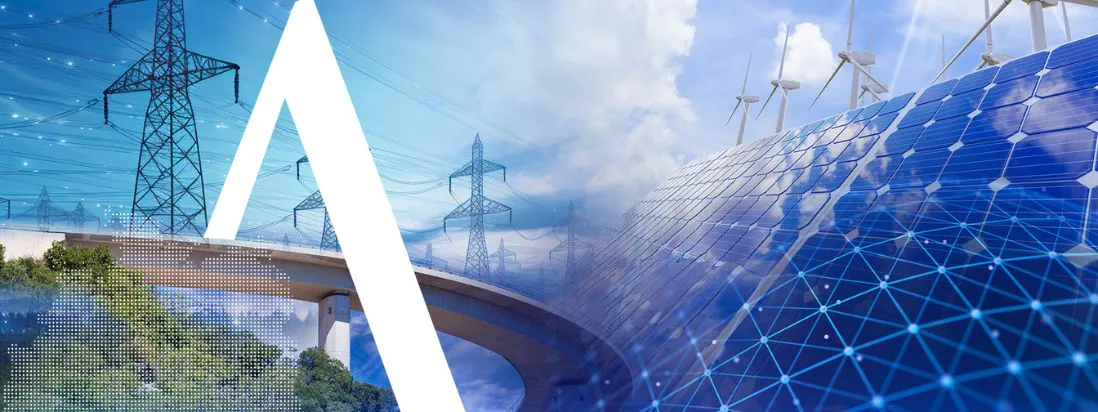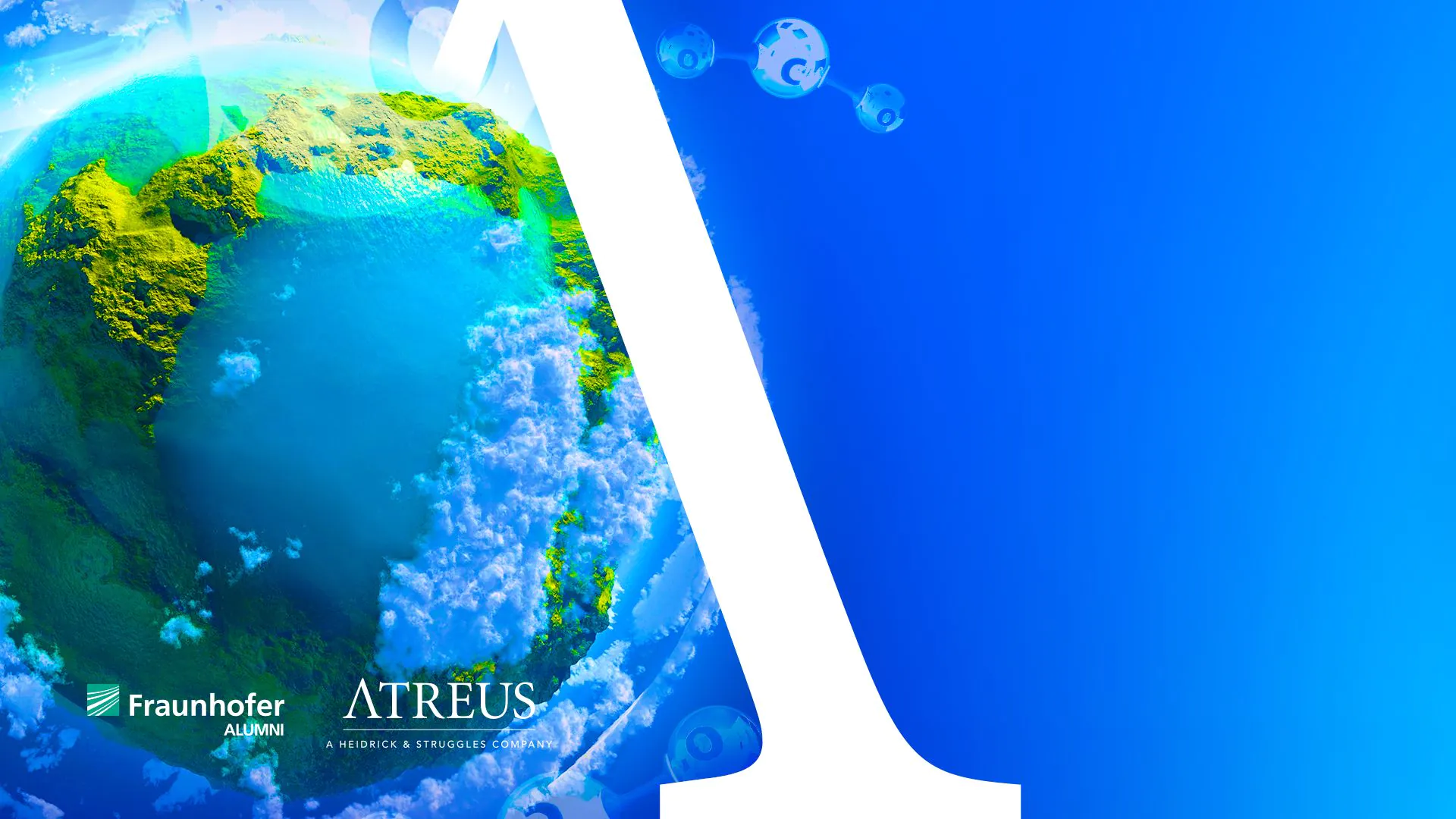 ©tussik, ©Photobank – stock.adobe.com
©tussik, ©Photobank – stock.adobe.com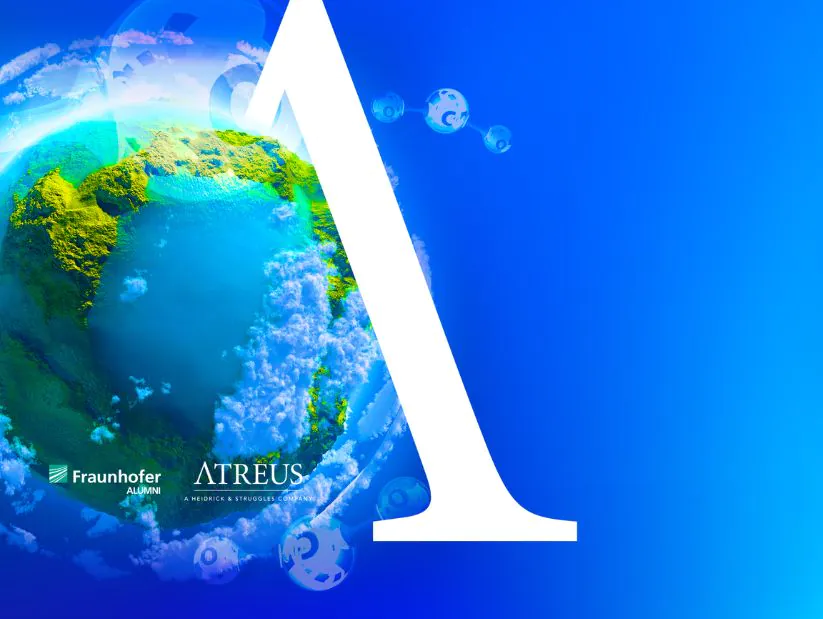
6. Innovation Lounge Digital
Paths to climate neutrality – Technological coexistence
Science and management in dialogue – in cooperation with Fraunhofer Alumni: “Paths to climate neutrality – technological coexistence”
July 18, 2024
Did you miss the event?
Watch the video with the most important learnings: (in German)

A summary of the Climate Neutrality Innovation Lounge in 8 theses

1. Reducing CO2 emissions in construction is crucial for the goal of climate neutrality
Prof. Dr Gunnar Grün, Head of Department at the Fraunhofer Institute for Building Physics IBP, emphasises the importance of reducing CO2 emissions in the construction industry. ‘30 to 40 per cent of emissions in Germany come from the building sector,’ explains Grün. In order to become climate-neutral by 2045, the annual reduction rates for emissions must be massively increased. The decarbonisation of the cement industry is an important lever here, but only one of the key measures. Grün emphasises that the use of geothermal energy for heat supply also offers great potential, both in the municipal and industrial sectors. And these are just some of the options for making Germany’s building sector greener and, in particular, achieving the heating transition: After all, 90% of energy consumption in private households is for space heating and hot water, and more than 85% currently comes from fossil fuel sources.
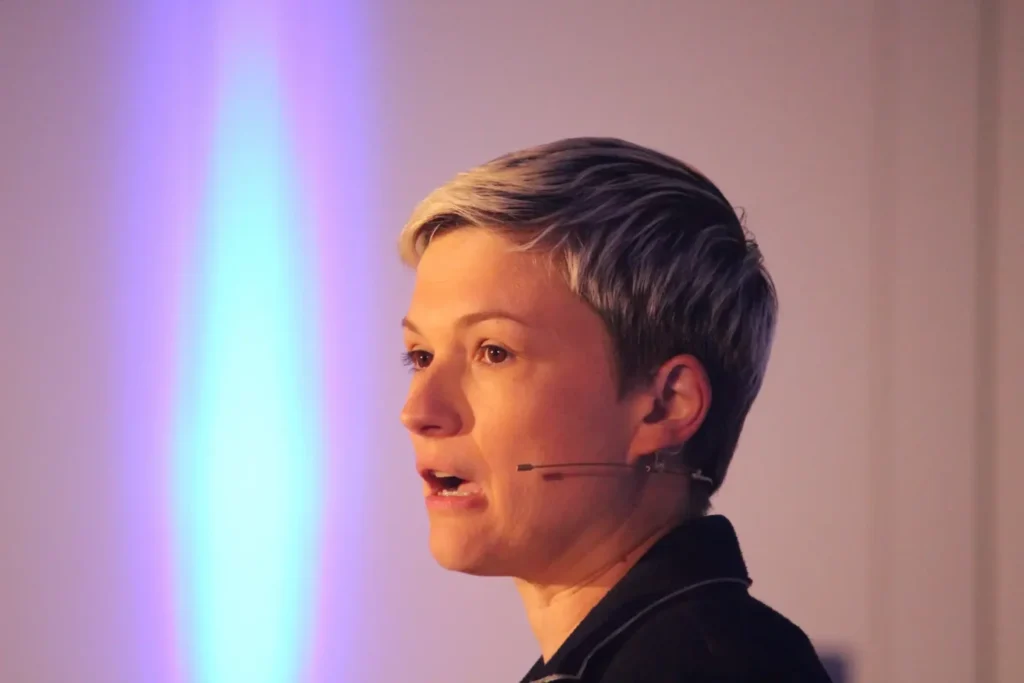
2. (Nuclear) fusion offers a sustainable energy perspective in the medium to long term
Dipl.-Ing. Claudia Keibler-Willner, topic coordinator for fusion research at the Fraunhofer-Gesellschaft, explains the advantages of nuclear fusion as a long-term energy source. ‘Fusion is safe, sustainable and CO2-free,’ says Keibler-Willner. Despite the long research and development time, the very complex research and the high costs, she sees great potential, especially in inertial confinement fusion, to meet the energy demand of the future. Important research breakthroughs have been made in this area in the recent past. ‘We now need to start building the ecosystem for fusion technologies.’ The involvement of industry and, in particular, long-term support from politicians are crucial to driving forward research and development in the field of fusion.
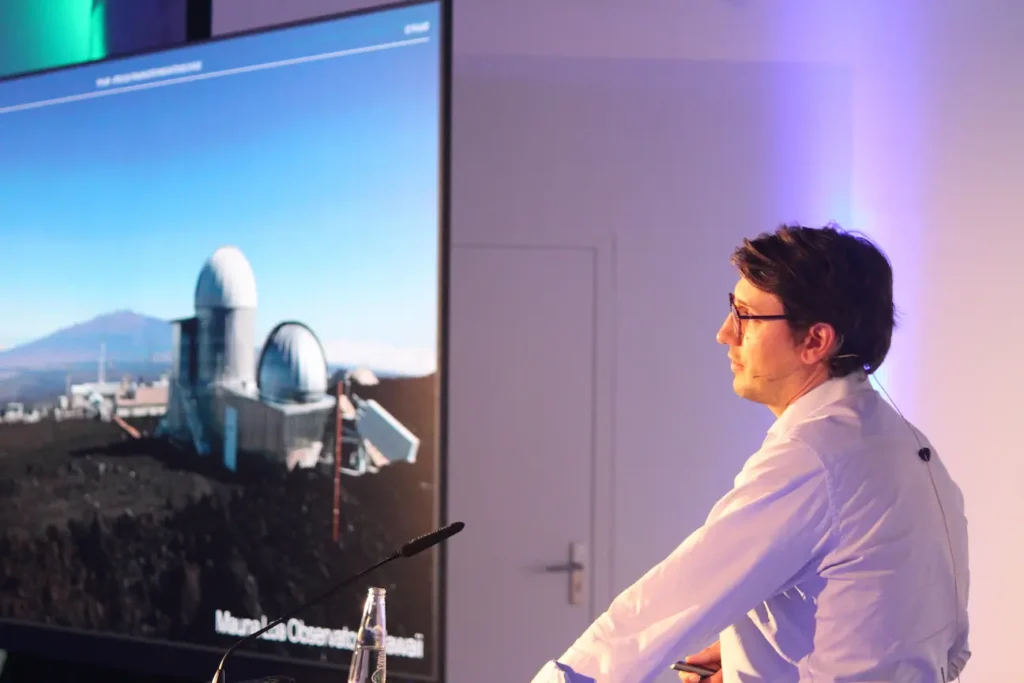
3. Carbon capture is key to reducing excess CO2 in the atmosphere
Malte Feucht, founder and CEO of the start-up Phlair, emphasises the need for technologies to remove CO2 from the atmosphere. ‘We have been producing invisible waste for many decades and releasing it into the atmosphere – in the hope that it will disappear into thin air. We have never had a “Kehrwoche” (sweeping week) for the atmosphere, as is customary in my home region of Swabia,’ says Feucht. Direct Air Capture (DAC) is an effective method of permanently removing the very stable and inert molecule CO2 from the earth’s atmosphere and utilising it as a raw material for the production of chemicals, for example. However, scaling up this technology is a challenge: ‘The costs are currently still too high, but in the long term we are aiming for costs of less than € 100 per ton of CO2’ explains Feucht. Thanks to its engineering tradition and manufacturing expertise, Germany could play a leading role in the development and export of these technologies – and reduce CO2 concentrations again.
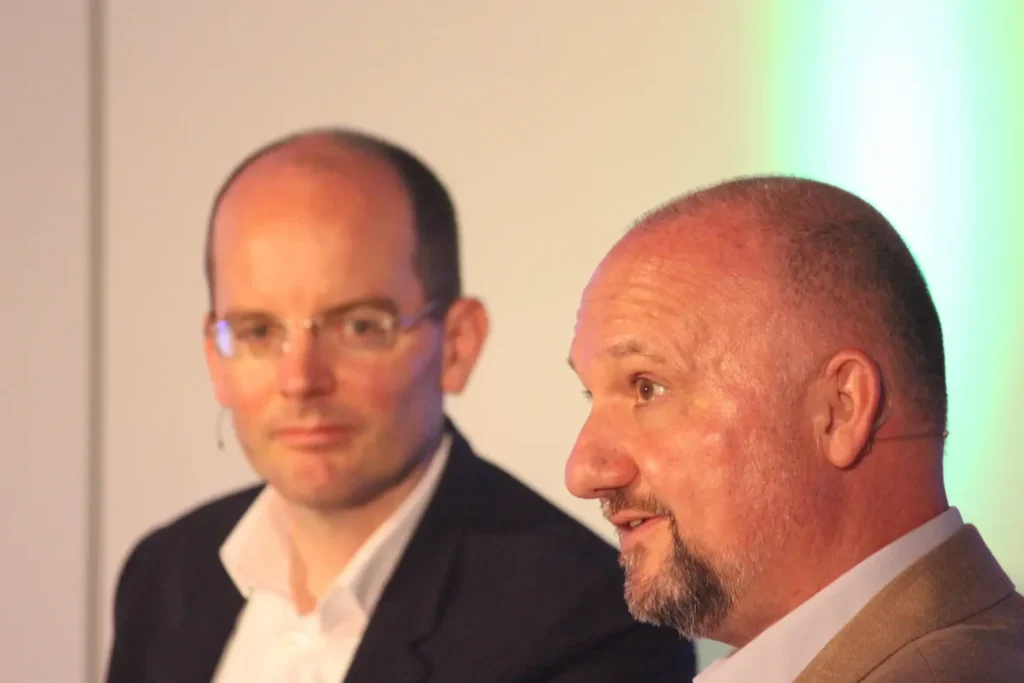
4. Thermal waste utilisation is an essential part of the circular economy
Dr Joachim Manns, Managing Director and COO of EEW Energy from Waste GmbH, brings a different approach into play at first glance, but one that is quite similar on closer inspection: he explains the importance of thermal waste utilisation for the circular economy. ‘Waste is a recyclable material, waste is a resource,’ says Manns. Modern waste incineration plants convert waste into energy, thereby helping to conserve resources and protect the climate. ‘We are part of the circular economy and can make a significant contribution to climate protection,’ explains Manns. The integration of technologies such as big data and AI into waste management could further increase efficiency and minimise the environmental impact – or increase the potential.
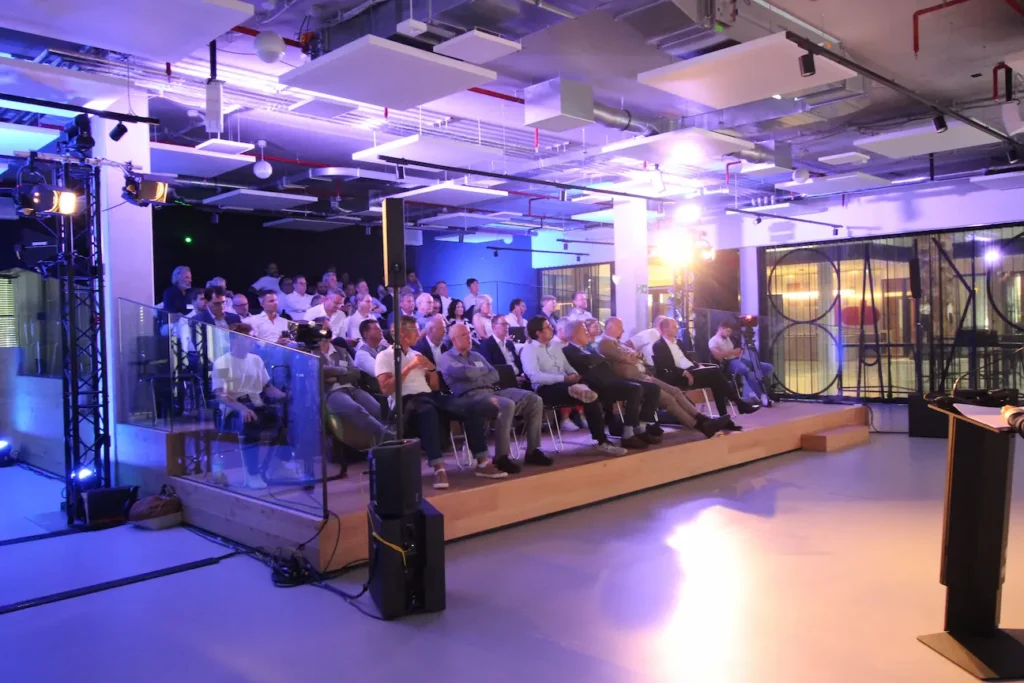
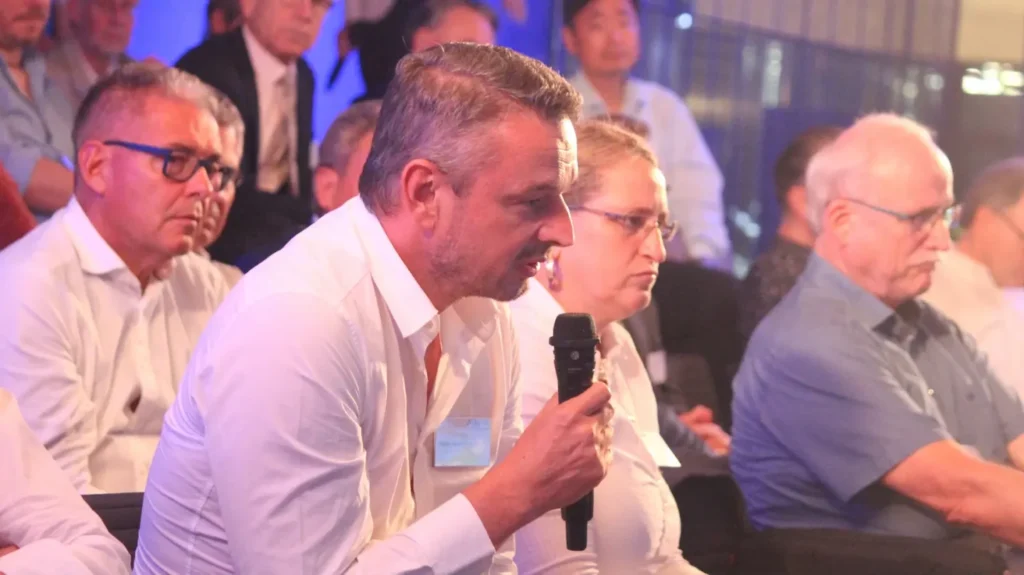
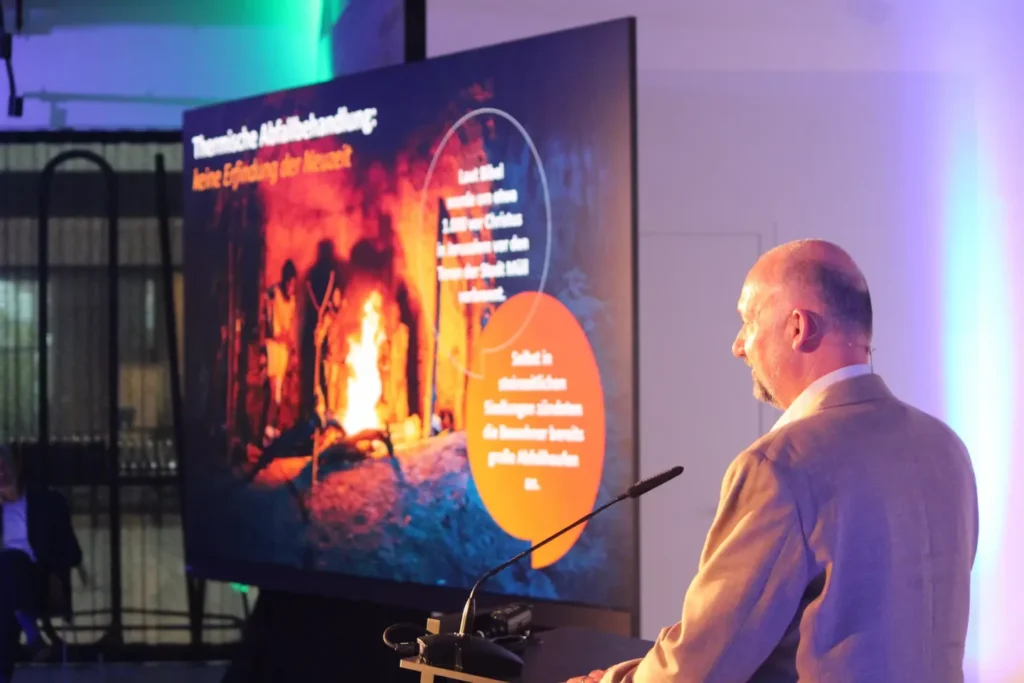
7. Holistic approaches and international cooperation are necessary to tackle climate change
Holistic approaches and international cooperation are necessary to tackle climate change.
Dr Joachim Manns from EEW Energy emphasises the need for holistic approaches and international cooperation. ‘We need to link up closely to bring together expertise and work together effectively,’ says Manns. Investments in infrastructures such as CO2 networks, which have not been discussed at all to date, and cooperation with external partners are crucial to mastering the challenges of the energy transition. ‘It’s about developing and implementing solutions together in order to achieve the climate targets,’ says Manns.
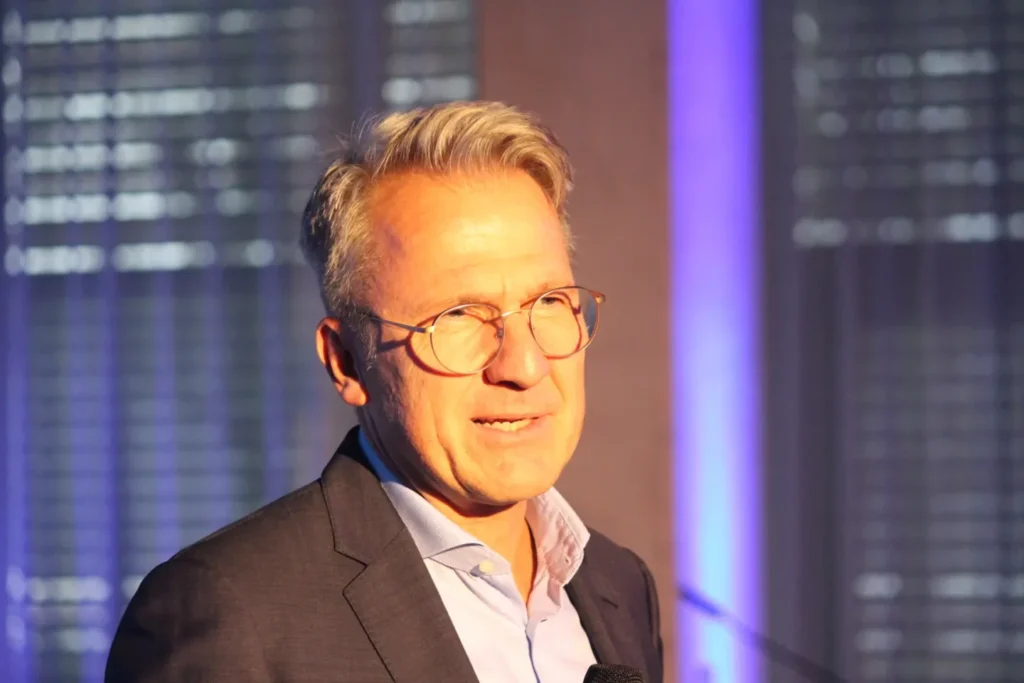
8. Ambassadors who can promote non-ideological solutions to tackle climate change are needed now
The Year of Science 2025, proclaimed by the Federal Ministry of Education and Research, is all about future energies. The Innovation Lounge anticipated this year of science six months in advance, as Viktor Deleski from Fraunhofer, who opened the event, said: ‘We need to start a dialogue now and get active.’ Atreus partner Dr Christian Frank adds: ‘We need ambassadors for the new beginning – people who want to change things and just do it.’ Deleski recalls that in a 1983 episode of the TV programme ‘Löwenzahn’, Peter Lustig showed a VW Golf I with an electric motor as a vision of the future and said: ‘And if we make a real effort, then maybe in 40 years we’ll get all the petrol cars off the road!’ To ensure that another 40 years don’t pass before then, we will probably need all the solutions we can think of to tackle climate change.
Our Speakers
Atreus Hosts
You may also be interested in these topics:
Whitepaper
Quantum computing – game changer in waiting position
Quantum computing promises a technological revolution, but the know-how could migrate from Europe from 2026. Why you should get to grips with this future technology today. Develop your quantum strategy, learn from experts and evaluate the reality and applicability of this fascinating technology.
Manager Event
Leadership+ Event “Innovation”
Dr. Christian Frank, Atreus Partner and member of the Executive Board, and Rainer Nagel, CEO of Atreus, have gathered experts from many industries for an exciting discussion on current leadership topics.
 +49 89 452249-540
+49 89 452249-540 
